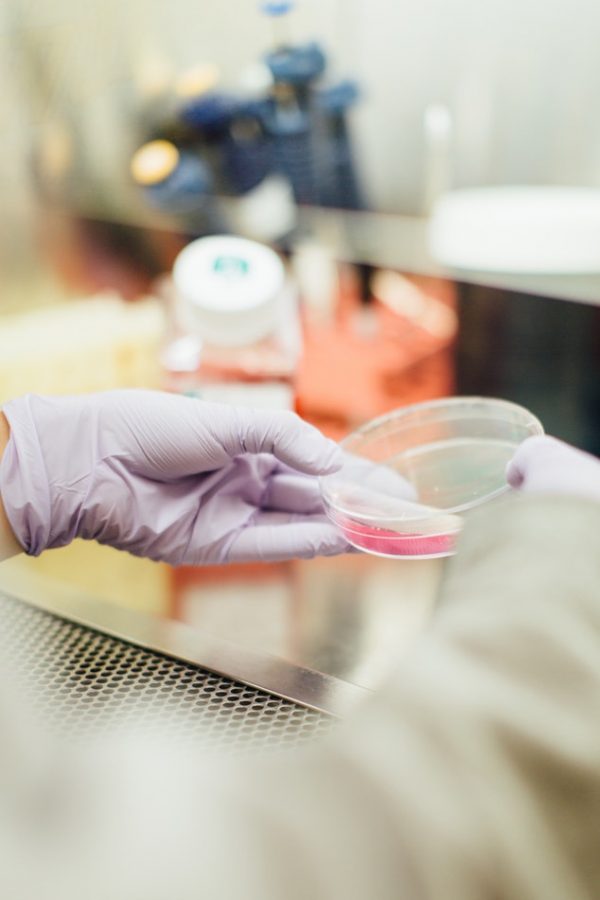Scientists closer to finding cure for HIV
March 6, 2019
A British man shows no signs of HIV after receiving various bone marrow transplants from an HIV-resistant donor, possibly making him the second known person to be cured of the virus.
Human immunodeficiency virus (HIV) is a virus which is transmitted through body fluids and attacks the body’s immune system, specifically CD4 cells, also known as T cells. If untreated, the virus can lead to AIDS which is the most sever phase of HIV. AIDS damages the immune system which can leave the body vulnerable to severe illnesses. HIV was known for being incurable, even with treatment, until recent years were the prospect of a cure is becoming more probable.
Timothy Brown, also known as the “Berlin patient”, shocked the world in 2008 after being deemed clinically cured of the virus. Brown was diagnosed with HIV-1 in 1995 and later with acute myeloid leukemia. After many unsuccessful chemotherapy sessions, he received bone marrow transplants and doctors found that previous traces of HIV were no longer present, he was considered cured of HIV-1.
After his case, scientists attempted to replicate Brown’s treatment resulting in many failed attempts of discovering a cure, and he remained the only case where HIV was successfully eliminated until now.
“Everybody believed after the Berlin patient that you needed to nearly die basically to cure H.I.V., but now maybe you don’t,” said Dr. Ravindra Gupta, a virologist at the University College London.
The second person to be cured of HIV, also known as the “London patient”, received bone barrow stem cells from a donor, who carried a rare genetic mutation that was HIV-resistant, for nearly three years. Highly sensitive tests were conducted on the man after 18 months of not using antiretroviral drugs and no traces of the previous HIV infection could be detected.
Dr.Ravindra Gupta stated that, “There is no virus there that we can measure. We can’t detect anything,” and proceeded to describe the man as “functionally cured” and “in remission”.
The London Patients case however is still considered to be too premature to be declared a successful cure. Despite this warning, many are excited about this breakthrough and the prospect of an HIV cure.
“These new findings reaffirm our belief that there exists a proof of concept that HIV is curable,” said the International AIDS Society president Anton Pozniak in response to the potential cure. “The hope is that this will eventually lead to a safe, cost-effective and easy strategy to achieve these results using gene technology or antibody techniques,” they added.
Regardless of this success, many experts believe the treatment is an inefficient way of curing all patients and were quick to point out its flaws including its risk, complexity, and the costly price. They also mentioned that locating matching donors with the CCT5 mutation, with many of them being of northern European descent, would be difficult.
“…is not a scalable, safe or economically viable strategy to induce HIV remission, ” commented AIDS specialist at the University of California, San Francisco, Dr. Timothy Henrich, who was not involved in the case study. Dr. Henrich also believed that, “This is only going to work if someone has a virus that really only uses CCR5 for entry — and that’s actually probably about 50 percent of the people who are living with H.I.V., if not less.”
Researchers continue to pursue more viable remedies for HIV including gene modification and immune modifying therapies.
“I do have hope. I think that finding a scalable cure that is safe and can be applied to a vast majority of individuals living with HIV is definitely attainable, but we have a lot more work to go,” commented Dr.Henrich.
sources
- https://www.theguardian.com/society/2019/mar/05/london-patient-becomes-second-man-to-be-cleared-of-aids-virus
- https://www.washingtonpost.com/health/2019/03/05/decade-after-first-person-was-cured-hiv-second-patient-is-long-term-remission/?utm_term=.57298e17670c
- https://www.cnn.com/2019/03/04/health/hiv-remission-london-patient-study-bn/index.html
- https://www.nytimes.com/2019/03/04/health/aids-cure-london-patient.html
- http://defeathiv.org/berlin/
- https://www.hiv.gov/hiv-basics/overview/about-hiv-and-aids/what-are-hiv-and-aids






